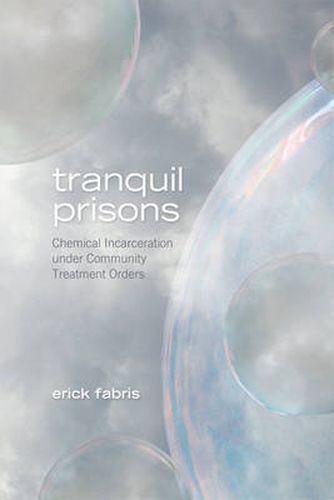Readings Newsletter
Become a Readings Member to make your shopping experience even easier.
Sign in or sign up for free!
You’re not far away from qualifying for FREE standard shipping within Australia
You’ve qualified for FREE standard shipping within Australia
The cart is loading…






Antipsychotic medications are sometimes imposed on psychiatric patients deemed dangerous to themselves and others. This is based on the assumption that treatment is safe and effective, and that recovery depends on biological adjustment. Under new laws, patients can be required to remain on these medications after leaving hospitals. However, survivors attest that forced treatment used as a restraint can feel like torture, while the consequences of withdrawal can also be severe.
A brave and innovative book, Tranquil Prisons is a rare academic study of psychiatric treatment written by a former mental patient. Erick Fabris’s original, multidisciplinary research demonstrates how clients are pre-emptively put on chemical agents despite the possibility of alternatives. Because of this practice, patients often become dependent on psychiatric drugs that restrict movement and communication to incarcerate the body rather than heal it. Putting forth calls for professional accountability and more therapy choices for patients, Fabris’s narrative is both accessible and eye-opening.
$9.00 standard shipping within Australia
FREE standard shipping within Australia for orders over $100.00
Express & International shipping calculated at checkout
Antipsychotic medications are sometimes imposed on psychiatric patients deemed dangerous to themselves and others. This is based on the assumption that treatment is safe and effective, and that recovery depends on biological adjustment. Under new laws, patients can be required to remain on these medications after leaving hospitals. However, survivors attest that forced treatment used as a restraint can feel like torture, while the consequences of withdrawal can also be severe.
A brave and innovative book, Tranquil Prisons is a rare academic study of psychiatric treatment written by a former mental patient. Erick Fabris’s original, multidisciplinary research demonstrates how clients are pre-emptively put on chemical agents despite the possibility of alternatives. Because of this practice, patients often become dependent on psychiatric drugs that restrict movement and communication to incarcerate the body rather than heal it. Putting forth calls for professional accountability and more therapy choices for patients, Fabris’s narrative is both accessible and eye-opening.